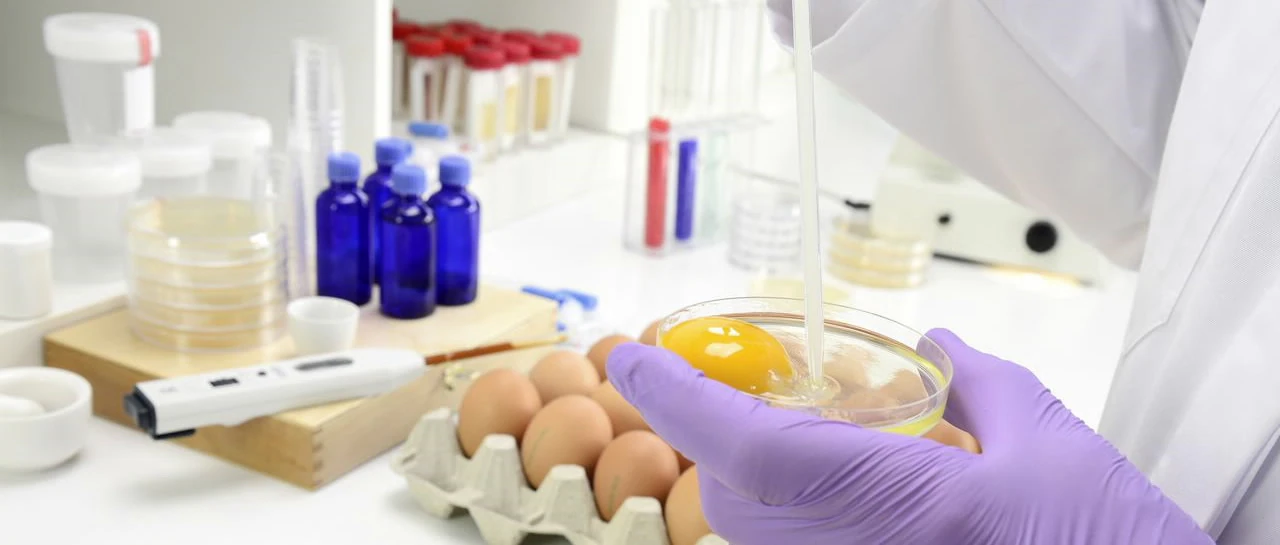EN 17861 MSG Quantification in Processed Foods
The European Standard EN 17861 specifies a robust methodology for quantifying monosodium glutamate (MSG) in processed foods. This service is particularly crucial for food and feed testing, as it ensures the accurate measurement of an additive known to impact flavor profiles significantly. MSG is widely used in various processed foods such as soups, sauces, and seasonings, where its presence can influence both safety and consumer perception.
Compliance with this standard is essential for quality managers, procurement teams, and R&D engineers responsible for ensuring the integrity of food products. The test aligns with global regulatory requirements to safeguard public health by preventing potential adverse effects associated with excessive MSG consumption. This service not only aids in meeting legal compliance but also enhances product safety and consumer trust.
The quantification process involves several critical steps, including sample preparation, which requires meticulous handling of the processed food specimens to ensure accurate results. Post-sample preparation, the methodology leverages advanced analytical techniques such as High-Performance Liquid Chromatography (HPLC) or Mass Spectrometry for precise measurement. This approach ensures that any MSG present is accurately quantified according to the standard.
The importance of this service extends beyond legal compliance; it also plays a vital role in product development and quality control. For R&D teams, understanding the presence and concentration of MSG can guide formulation adjustments, ensuring products meet market expectations without compromising safety or regulatory standards. Procurement officers benefit from knowing these parameters to source ingredients that adhere strictly to international standards.
Compliance officers must ensure their processes align with EN 17861 to avoid potential fines and legal actions. By adhering to this standard, they can maintain a robust quality assurance program that is transparent and reliable. This service thus supports the broader goals of maintaining product integrity and consumer confidence.
Why It Matters
The quantification of MSG in processed foods using EN 17861 is not only a regulatory requirement but also an essential practice for ensuring food safety and quality. MSG, while enhancing flavor, can have potential health implications if present in excessive amounts. This service helps in maintaining the balance between flavor enhancement and consumer safety.
For quality managers and R&D engineers, this quantification ensures that processed foods meet not only legal requirements but also taste and texture expectations set by consumers. In the context of food safety, it is crucial to ensure that products do not contain harmful levels of MSG. This service supports the development of safer and more appealing products.
For procurement teams, understanding MSG quantification ensures they source ingredients from suppliers who adhere strictly to international standards. This practice reduces risks associated with non-compliant raw materials entering their supply chain. By leveraging this service, companies can enhance their reputation for producing high-quality, safe food products.
The broader impact of this quantification goes beyond individual companies; it contributes to the overall trust in food safety and quality assurance systems across industries. This aligns with global initiatives aimed at improving public health outcomes through informed consumer choices and transparent supply chains.
Scope and Methodology
| Aspect | Description |
|---|---|
| Sample Preparation | Involves careful handling of processed food specimens to ensure accurate quantification. This includes homogenization, extraction, and dilution steps. |
| Analytical Techniques | Utilizes advanced methods such as HPLC or Mass Spectrometry for precise measurement of MSG. |
| Reference Materials | Incorporates certified reference materials to ensure consistent and accurate results across different laboratories. |
| Acceptance Criteria | Absence of deviations from the specified tolerances as per EN 17861 ensures compliance with international standards. |
This service adheres strictly to the provisions outlined in EN 17861, ensuring accurate and reliable quantification. The use of certified reference materials enhances the credibility of results, making this service indispensable for maintaining product integrity and compliance with global standards.
Environmental and Sustainability Contributions
The quantification of MSG in processed foods using EN 17861 supports sustainability initiatives by ensuring that food products are produced without exceeding safe limits of additives. This aligns with broader environmental goals aimed at reducing the burden on natural resources.
By ensuring compliance with this standard, companies can reduce waste and energy consumption associated with producing non-compliant products. This service also promotes the use of sustainable practices in ingredient sourcing and product formulation, contributing to a more environmentally responsible industry.
The quantification process itself is designed to minimize environmental impact through efficient sample handling and advanced analytical techniques that require minimal resources. By adhering to this standard, companies can demonstrate their commitment to sustainability, thereby enhancing their reputation as leaders in responsible business practices.





